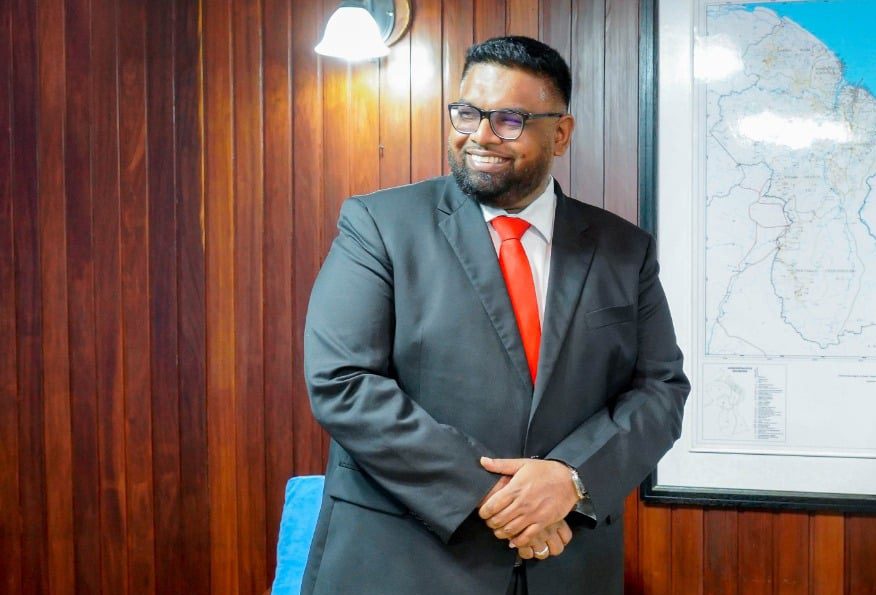President of Guyana Dr. Mohamed Irfaan Ali gave a masterclass to academics at the Harvard University Business School on Monday, during which he outlined how the country’s growing oil and gas sector will push Guyana’s economy forward in a sustainable manner.
The President gave an address during the institution’s virtual faculty workshop on the microeconomics of competitiveness. He noted that though competitiveness has a lot to do with creating an environment that is attractive to investment from the global private sector, being competitive also means being able to foster a society that provides the best livelihood to citizens.
“The key initiatives for managing the sector are, and presently, we are in the process of tabling a lot of these before the national assembly – a draft local content policy and bill, establishment of a natural resource fund, building local content for auditing, revising fiscal management of the petroleum sector, establishment of an accountability and transparency framework.”
Of these, the government is preparing to take local and content and sovereign wealth fund amendments to Parliament before the year ends, Ali had said in October.
On top of these interventions, the Government is putting measures in place to have associated gas piped to shore from ExxonMobil’s Liza field. The President said the project will provide more gas than is needed to power all of Guyana’s electricity needs, opening up investment opportunities for excess gas.
“More major investment opportunities will become available for the use of natural gas. As a result of this, we’re in the process of building an industrial development authority in an area of Guyana called Wales, that would bring in new industries, [for example] fertiliser to support our local agriculture production…,” Mr. Ali said.
The government sees the oil and gas sector as a vehicle for the growth of the non-oil sectors. One example of this would be the use of the natural gas byproduct, ammonia, for fertiliser. Mr. Ali’s vision is for Guyana to become self-sufficient, and to feed the rest of the Caribbean Community (CARICOM) using its agricultural produce.
“So, it is using the natural resource to enhance our competitive advantage in different sectors. On the energy side, over 250 MW of electricity will be produced. And one of our most inhibiting factors for manufacturing that inhibits our competitiveness for manufacturing and industrial development is the cost of energy,” the President said.
Lowering the cost of power, for the administration, would both make Guyana an attractive destination for investment and reduce the cost of living for working families.
The project is also expected to significantly reduce electricity related emissions.
The contributions of oil and natural gas production to the growth of Guyana’s other sectors could have wide-reaching impacts. The President explained that the government will use Guyana’s oil resources to create a truly diversified economy.
Asked to outline his vision for Guyana 20 years down the line, Mr. Ali said, “I see a country that is highly sustainable, prosperous, one in which there is very minimal inequality, disparity among people, one in which our people have first class access to health care services… first world access to educational services, where our people are meaningfully occupied. We’re highly educated, and qualified, human resource based.”
He added that in this scenario, Guyana’s economic portfolio is so wide that it can withstand global shocks. He also envisions a Guyana that is a responsible and transparent partner in global development, and a country that provides a framework for opportunities for global investors.



